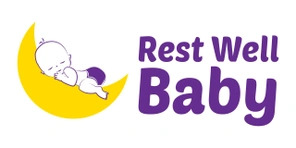Blog

4 Month Sleep Regression
Navigating the 4-Month Sleep Regression: A Pediatric Sleep Coach's Guide
As a pediatric sleep coach, I often hear from parents about the dreaded 4-month sleep regression. This phase can be incredibly challenging, marked by disrupted sleep patterns, frequent night wakings, and shorter sleep durations. While it may feel like a setback, understanding the reasons behind this regression can help you navigate it more smoothly.
What is the 4-Month Sleep Regression?
The 4-month sleep regression is a developmental milestone that often occurs around the 4-month mark. During this time, babies undergo significant brain development, leading to changes in their sleep patterns. Their sleep cycles become more mature, with longer periods of deep sleep and REM sleep. However, this transition can disrupt their sleep, causing them to wake up more frequently.
Why Does it Happen?
Several factors contribute to the 4-month sleep regression:
Brain Development: As mentioned, babies' brains are rapidly developing, leading to changes in their sleep architecture.
Growth Spurts: Babies often experience growth spurts around this age, which can increase their energy needs and disrupt their sleep.
Teething: While teething may not be the primary cause, it can exacerbate sleep disruptions.
Sensory Overload: Babies are becoming more aware of their surroundings and may be easily overstimulated, affecting their ability to fall asleep and stay asleep.
Tips for Navigating the 4-Month Sleep Regression
Here are some practical tips to help you and your baby through this challenging phase:
Establish a Consistent Sleep Routine: A consistent bedtime routine can help signal to your baby that it's time to wind down. This routine should include calming activities like a warm bath, a gentle massage, and reading a book.
Create a Sleep-Conducive Environment: Ensure your baby's sleep environment is dark, quiet, and cool. A white noise machine can help mask background noises and create a soothing atmosphere.
Practice Safe Sleep: Always place your baby on their back to sleep in a crib that meets safety standards. Avoid using loose bedding, pillows or toys in the crib.
Responsive Feeding: While it's important to establish a feeding schedule, be responsive to your baby's hunger cues, especially during growth spurts.
Seek Professional Help: If you're struggling to cope with your baby's sleep issues, don't hesitate to reach out!
Remember, the 4-month sleep regression is a temporary phase. By implementing these strategies and staying patient, you can help your baby get through this challenging period.
If you're struggling to help your baby develop healthy sleep habits, Book your 30 minute Sweet Dreams Starter call to learn how I can help your family get the gift of sleep.
Yours in sleep,
Tracie / Rest Well Baby
www.restwellbaby.com
Tracie Kesatie is a Certified Gentle Sleep Coach dedicated to helping families with little ones 0-10 years of age achieve a restful night's sleep.
Disclaimer: This article provides general information and is not intended as medical advice. Always consult with your pediatrician for any concerns about your child's health.
Blog





